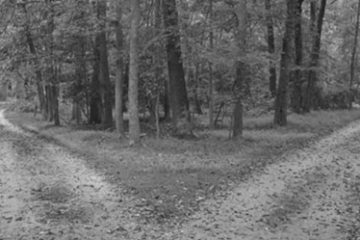After the Banquet
A Sermon by Trevor Bechtel on November 26 2023
Good morning
The nice thing about preaching about food on Thanksgiving weekend is that your sermon doesn’t need an introduction. You are all probably thinking about food already. And if you weren’t thinking about food on your way into church this morning seeing the collection of food for S.O.S. or our celebration of communion in the bulletin this morning has probably done it.
We have been thinking about justice together this fall, in particular thinking about justice in our county. And thinking about food might be one of the best ways for us to think about justice. Food is something that all of us need every day. Fasting is a meaningful spiritual practice because we when we do it we encounter ourselves beyond our needs. But while we all need food we have very different abilities to access food. When I moved from rural Ohio to Ann Arbor 15 years ago now I was shocked by how much more accessible good food was to me in this liberal city than it had been in the conservative village I’d come from. Of course, part of why food is accessible to me is that I am wealthy enough to buy it, even when it is expensive; and in addition to the abundance of very good grocery stores and expansive farmers markets, I did also notice the prices when I moved here. You can buy more, higher quality, more ethically produced food here, but you do pay for it. The justice questions are very easy to see in this simple story and I haven’t yet invoked the urban food desert; that lack of any kind of grocery store in lower income, and often black and brown neighborhoods in larger cities.
Food is something that we need every day but food is also very meaningful to people. Many people shared a meal this weekend with family. Many people ate food that was culturally important to them. More people travelled to do this than at any other time this year. Coming together around food at Thanksgiving is also a time when family disagreements and dysfunctions can be at their peak. Food can raise a whole set of questions of how to talk to people we don’t agree with. A meal with friends or strangers as in today’s scripture can give us an imagination of community beyond family; it’s one of our best images of being the church.
Finally food raises a whole set of questions about the environment, sustainability, simplicity, climate change, this list goes on. When I taught college at Bluffton University I taught a course called Christian Values in the Global Community. One of my favorite assignments was to have students submit a favorite recipe with a history of at least two of the ingredients that traced their source. My goal was to have them choose something like salt and realize how something very simple and basic could have a very complicated history. I don’t think that we nurture the imagination to examine our lives in this kind of detail and I was typically very disappointed by these papers. Hopefully, this exercise works better as a sermon illustration than it did in that class.
Any of these moments could serve as a the entirety of a sermon on a day when I’m not aiming to talk for a long time. The one that I want to focus on for just a moment was something said by Jeff Leibman, a Harvard economist who spoke in the Poverty Solutions speaker series that I facilitate each fall. Jeff ran a program called Chelsea Eats during the height of the pandemic. Chelsea is a town just outside of Boston with a progressive city manager. It’s a place where many low income and minority people who work in service industries live. When the pandemic shutdown occurred many of these people lost work and income. Thoughtful people knew that this was going to be a bigger problem in Chelsea than other places and arranged to have groceries available for pick up; food pantry style. They were completely overwhelmed by the demand. Business and the city ramped up distribution as fast as they could. They quickly realized that they were providing an absolutely necessary service and that providing it was much more inefficient than simply giving money to people would be. Rebuilding the distribution system that grocery stores already had built worked, but was expensive and inefficient. So they pivoted. Instead of providing food, they signed people up for the Chelsea Eats program and gave them debit cards. People spent the money to buy food, and other necessities, and they spent it locally. The program kept people fed, and it also kept local business open. It was very successful. There is a good documentary of the program called Raising the Floor.
There is a lesson here that has been present throughout our series this fall. The best solutions to many social problems are found at the societal level. The solutions to homelessness is housing and we need government to incentive affordable housing in order to solve this problem. The solution to food insecurity is reliable access to food, rather than a handout at a pantry.
But the moment that was most interesting to me was when Jeff was asked if there is a role for food pantries when money to shop at a grocery store is a much more efficient solution. He said yes, there is, because there are always going to be people that society doesn’t want to care for.
There are always going to be people that politicians don’t want to care for.
This is the lesson of scripture today too. The banquet holder is happy to have a banquet for family and friends. But when the friends flake out the banquet holder looks beyond family and friends to those who need food, to those who society does not want to care for. Inclusion is the first lesson of this parable. The second lesson is abundance. The prepared banquet has more room than there are people who want, or need, to come.
Rereading this passage in preparation for this morning’s sermon I realized that feeding those who society does not want to care for is not a one time thing for the banquet holder. The banquet holder gives up on those initially invited to the banquet. The banquet holder ends the parable with the statement, “not one of those I had initially invited will taste a bite of dinner.”. Food becomes for the banquet holder a chance to think about justice.
Jesus’ parables are told to make us think and to keep thinking, to build the imagination in us necessary to shape the future into a place were God’s will reigns. I wonder what the future holds for the banquet holder. Will they continue to hold banquets, but focus now on including those who society doesn’t want to care for? Or is the banquet holder even wondering about banquets in and of themselves?
What would you do if you planned a banquet, a banquet so big that you couldn’t find enough people to eat all the food, even once you’d invited everyone you could find? Would you plan a big banquet again the next year, but try harder to find people to eat it? Or would you stop planning banquets? What would you do next?
Any of you who have seen the movie Babette’s Feast, where a cook who works for a group of older, very simple, very religious sisters, spends her lottery winnings on one banquet and brings life back into a lifeless community knows that the answer to this question is not simple.
I imagine that some of you might also be checking your bibles as I was in preparing this message. The somewhat angry statement, “But I tell you, not one of those I had initially invited will taste a bite of dinner.” isn’t the part of this parable we easily remember from childhood. As I was writing I noticed, in that surprised but then not really surprised sort of way that a common approach to this passage is to just leave out verse 24, ending with, “‘Go out and scour the side roads and the back roads and make them come in. I want my house to be full!”
Ending here retains the lesson to be as inclusive as a possible, to seek out inclusivity aggressively, and compel involvement, but it stops sort of some of the scorn for the rich the banquet holder now has, and perhaps also some of the justice seeking change of heart.
How we get our food, who has access to the food, and how the food is being shared; these are all big questions, big questions that we could ask of ourselves every day, but questions that would probably exhaust us if we did. However, they are questions that we need to ask sometimes. The act of communion, of eating food that is real food, but which also symbolizes something greater, is probably a good time to do this. One of the meanings of communion which I like a lot, and which I learned from the Jesuits that I studied with in Chicago, is that every celebration of communion is connected to every other celebration. Because we are eating bread which we name as the body of Christ, and because Christ has one body that is available to us regardless of time or place, each celebration is connected to each other celebration. This meal is an answer to these big questions, because it shows us that these questions are also one question, the question about how we should follow Jesus. Regardless of who we are, politician, economist, banquet holder, farmer, food pantry volunteer, grocery worker, cook, restauranteur, food critic, or compelled dinner guest, it a good question to ask.

